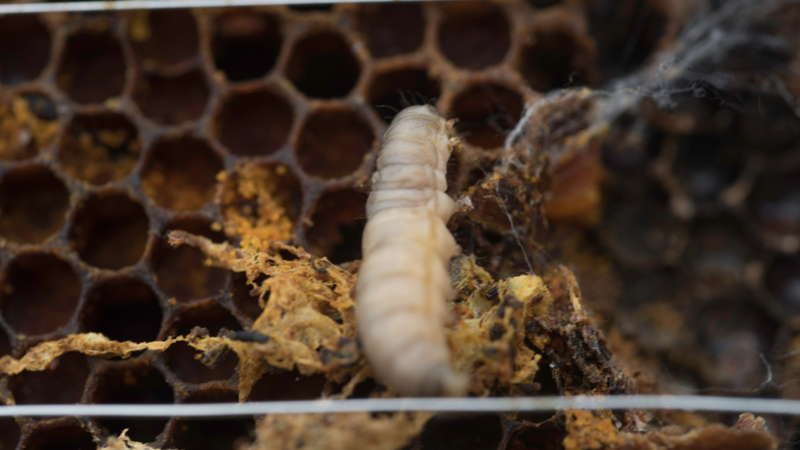Waxworm Saliva Rapidly Degrades Plastic Bags
Enzymes that rapidly degrade plastic bags have been discovered in the saliva of waxworms' moth larvae that infest hives. They are the first enzymes to degrade polyethylene within hours at room temperature, and they could lead to cost-effective methods for recycling plastic.
The discovery came after Dr. Federica Bertocchini, a microbiologist and amateur beekeeper, cleaned an infested beehive and found that the larvae that were put into a plastic garbage bag began eating holes in it. Eventually, she realized that it wasn't just chewing, but chemical degradation. In the recently published study Bertocchini and her colleagues state that two enzymes found in the larvae‘s saliva are responsible for the chemical breakdown of the polyethylene found in plastic bags.
Centuries from now, we will still be finding the remains of plastics that are produced today. Micro- and nanoplastics have been detected in almost every corner in the world; it even washes through our veins, as a team from the University of Amsterdam recently reported. Polyethylene that is found in plastic bags accounts for 30% of all plastic production and is used in bags and other packaging, accounting for a significant portion of the world's plastic pollution. The only recycling of plastics that takes place on an industrially large scale today uses mechanical processes and produces inferior products, also known as „downcycling“.
This recent revolutionary discovery of enzymes that chemically degrade plastics leads to the opppsite; the upcycling of plastic products. The chemical breakdown could produce valuable chemicals or, with some further processing, new plastic, avoiding the need for new plastic made from petroleum. The enzymes can be easily synthesized and overcome a bottleneck in plastic degradation, namely the initial breaking of polymer chains. Typically, this requires intense heating, but the enzymes work at normal temperatures, in water, and at neutral pH.
Previous discoveries of useful enzymes have been made in microbes: A 2021 study showed that bacteria in oceans and soils around the world are evolving to eat plastic. It found 30,000 enzymes that could break down 10 different types of plastic.
Currently, it is yet too early for a commercial application. More research needs to be done to think about how to develop this new strategy to deal with plastic waste. As well as large recycling plants, it might one day be possible to have kits in homes to recycle plastic bags into useful products. Other scientists are currently investigating beetles and butterfly larvae for their plastic-eating potential. We are already looking forward to finding out more about effective ways of recycling in the future!


